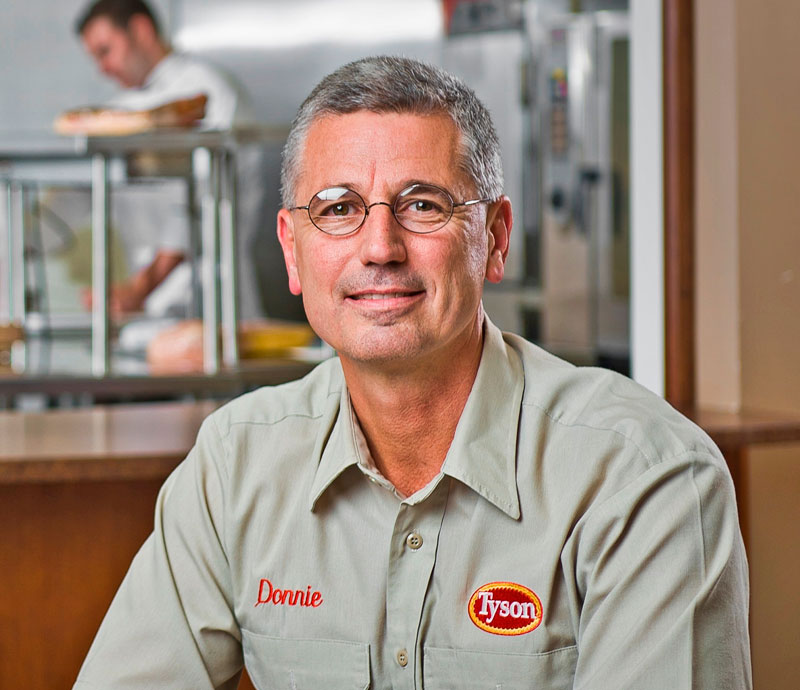Donnie Smith Leads Nation’s Largest Meat Producer
By Rich Polikoff
Like most college seniors, Donnie Smith was looking for a job he could start soon after graduation. A job tip ended up being his ticket to a long and successful career.
While a student at the University of Tennessee, Knoxville, Smith was a member of the agriculture fraternity Alpha Gamma Rho. Its faculty advisor, Charles Goan, suggested Smith try getting a job with a poultry company that had an operation in Shelbyville, Tenn.
So Smith spent much of 1980 hounding Tyson Foods Inc. into giving him a job. He started working for Tyson in December of that year, barely two weeks after he graduated with a bachelor’s degree in animal science from the UT Institute of Agriculture.
Ten jobs with Tyson later, Smith is the president and chief executive officer of the nation’s largest meat producer.
He and his wife, Terry, also a UT Knoxville alumna, endowed a scholarship in honor of Goan.
“After Dr. Goan told me about Tyson, I was locked in,” Smith says. “That was where I wanted to work. … So I just pestered the snot of out them.”
Smith says this with a laugh, but he’s not joking when it comes to his persistence. He believes it is important to work hard at every position, whether it’s as a field man — his first Tyson job, in which he rode around from farm to farm, helping poultry farmers raise better chickens — or as CEO of a company with 115,000 employees.
A few days after Smith became CEO in November 2009, the company reported a $455 million quarterly loss. By the first quarter of 2011, Tyson had record earnings.
Smith is a big team guy, the reason he rarely wears a suit and instead goes with a khaki uniform bearing Tyson’s logo. He’s made it a point to get to know as many of the company’s “Team Members” as possible. He’s constantly on the go, visiting Tyson’s nearly 90 plants.
Smith grew up in rural Arrington, Tenn., and by the time he graduated high school, he knew he wanted to work with animals. Although his parents weren’t farmers, they usually had a hog or two and a few chickens. He entered UT Knoxville as a pre-veterinary medicine major. Even though his grades were solid, he believed they needed to be spectacular to go to vet school. So he switched to animal science.
“It just tied physics and biology and chemistry together in the animal-production environment,” he says.



